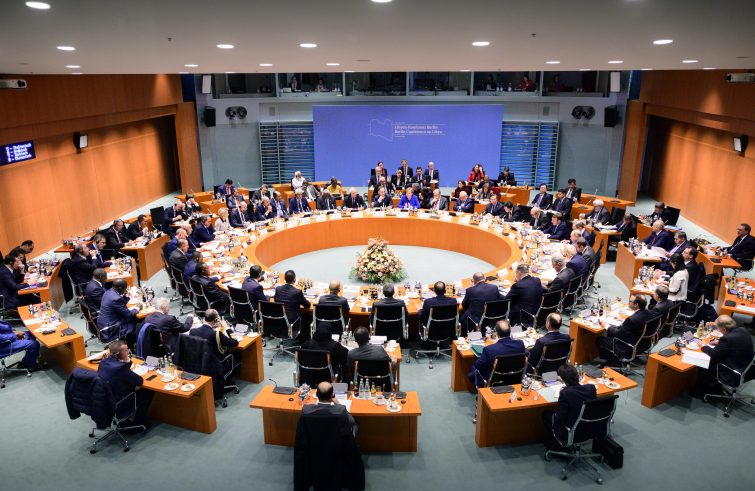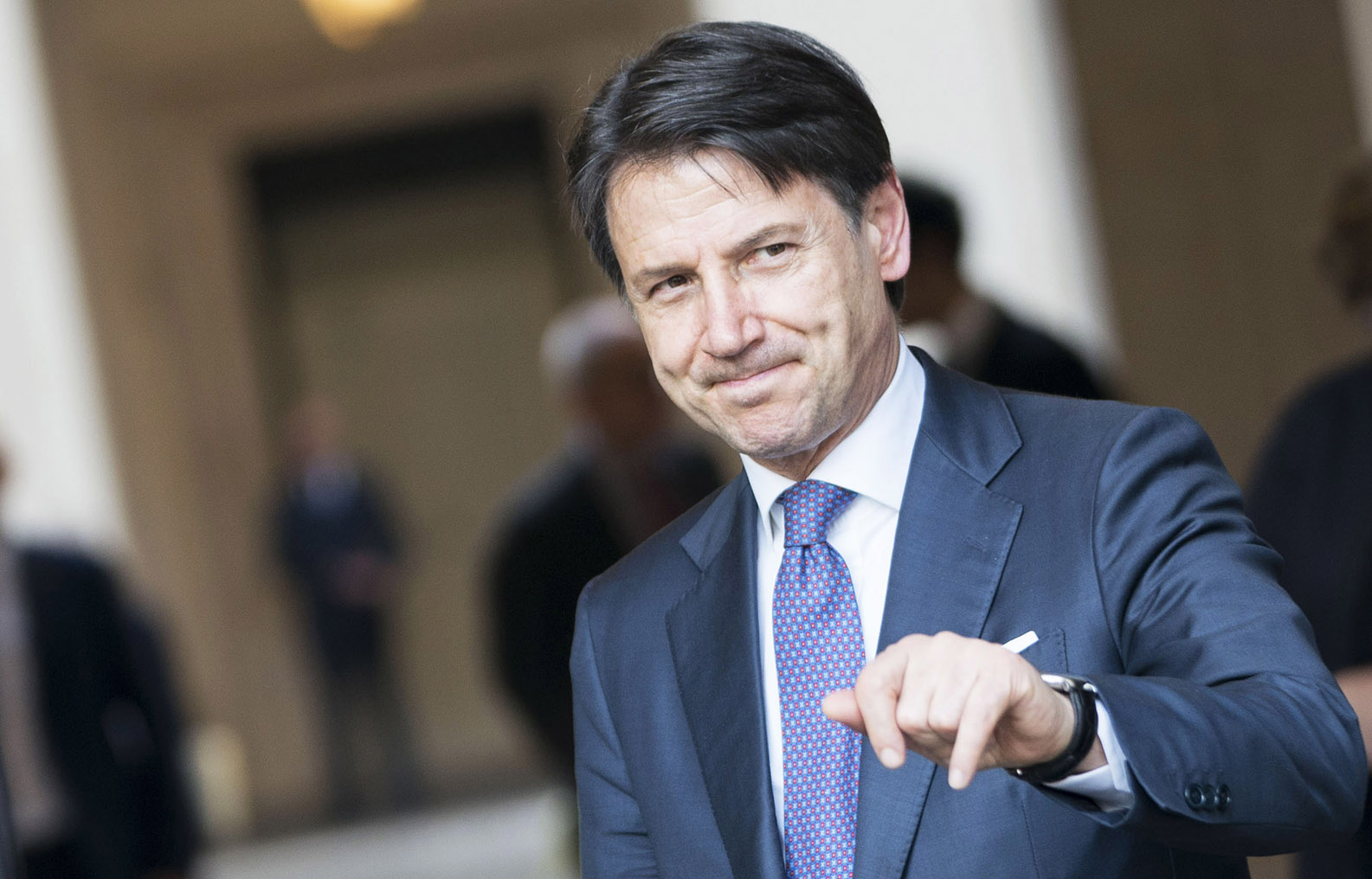
After the international conference on Libya, held yesterday in Berlin, SIR interviewed Michela Mercuri, analyst and Professor of Geopolitics of the Middle East at the Niccolò Cusano University and of Contemporary History of the Mediterranean Countries at the University of Macerata: “Given the key-players involved, such as Russia, the United Arab Emirates and Turkey, conflicting with each other until recently, nothing more could be achieved.”
 In the German capital, with Chancellor Angela Merkel doing the honours, all 18 delegations present ( including Italy, USA, France, Russia, Turkey, Great Britain, China, Egypt, United Arab Emirates, UN, EU, African Union and Arab League, Ed.’s note) set up a comprehensive plan, including a permanent ceasefire, an embargo on the sale of weapons, no interference or military support from foreign countries, the creation of a political panel and a military committee. The two contenders, General Khalifa Haftar and the premier of the UN-supported Government of National Accord ( GNA), Fayez al-Sarraj, were present in Berlin but did not meet.
In the German capital, with Chancellor Angela Merkel doing the honours, all 18 delegations present ( including Italy, USA, France, Russia, Turkey, Great Britain, China, Egypt, United Arab Emirates, UN, EU, African Union and Arab League, Ed.’s note) set up a comprehensive plan, including a permanent ceasefire, an embargo on the sale of weapons, no interference or military support from foreign countries, the creation of a political panel and a military committee. The two contenders, General Khalifa Haftar and the premier of the UN-supported Government of National Accord ( GNA), Fayez al-Sarraj, were present in Berlin but did not meet.
“At least theoretically, the maximum has been obtained. Now it will be necessary to understand how much of what has been agreed will be effectively enforceable in Libya today,” Mercuri said, pointing out that the “UN Resolution on weapons embargo, No. 1907 of 2011, imposes the embargo with corresponding sanctions, but no one has ever complied with it. Everyone in Berlin they said they would abide by it, in words.” “In the German capital – the expert added – al-Sarraj and General Haftar did not approve the final document, but in practice they agreed to create a military committee to monitor the ceasefire and establish a demarcation line between their armed forces. Will the two contenders succeed?”
The final agreement also vetoes foreign military interference and support. But Turkey and Russia have already deployed their armed forces. Isn’t it a contradiction?
“It is. The first thing to be done is to withdraw the respective troops from Libyan soil, as well as Russian military contractors and Turkish militias stationed in Libya. It’ s another problem that must be tackled on the ground. They claim they would do it, but it’s easier said than done.”
 So who could enforce the Berlin agreement? Maybe the UN?
So who could enforce the Berlin agreement? Maybe the UN?
The UN is divided internally and merely adheres to actions and proposals of the main players in Libya. In Berlin it played a marginal role, failing to secure a leading position over regional players operating in Libya. The existing rifts were confirmed by the Special Representative of the UN Secretary General himself in Libya, Ghassan Salamé.
So it seems that Turkey and Russia will press Al-Sarraj and Haftar to enforce the agreement. Is that right?
In the German capital we proposed an institutional framework for a Turkish and Russian-sponsored deal. Putin and Erdogan will implement the measures adopted in Berlin, where Italy and the EU played no relevant role. In fact we didn’t see a common European position in Berlin. Mrs Merkel discussed with the main players on the ground, Turkey and Russia. France continues to be disconnected from the EU by fully backing Haftar.
What has been the position of Italy?
Our country has been very busy in late-stage negotiations but it also played a minor role in Berlin. However, if a new government of national accord were to be created and a peace process initiated, strengthened by a lasting ceasefire, Italy, with its experience of militias and armed groups on the ground, could make a significant comeback.
 Prime Minister Conte said he was willing to participate in a European peacekeeping and interposition force…
Prime Minister Conte said he was willing to participate in a European peacekeeping and interposition force…
It could be a solution if it happened with everyone’s agreement. An interposition force must be approved by al-Sarraj and Haftar and it would be under the aegis of the United Nations. It must also be borne in mind that there are countless factions in Libya that don’t recognize the authority of Haftar and al-Sarraj. These include tribes, jihadists and ISIS cells entrenched in the south of the country capable of creating quite a few problems for this potential interposition force, resulting in casualties that the public opinion would not condone.
Greece was not present in Berlin and expressed its disappointment over the Memorandum of Understanding signed by al-Serraj with Turkey last November. Why did they not attend?
I believe that Greece’s absence was influenced by Turkey’s position. We bowed to Erdogan. It was a serious mistake because Greece is one of the key players in the Libyan crisis and in the maritime border issue, especially after the deal of 26 November between Turkey and al-Serraj, establishing an exclusive economic zone (EEZ) and expanding military security cooperation between the two sides thereby undermining Cyprus’ sovereignty. Erdogan counts on this area to seize the resources of the eastern Mediterranean.
 While talks were underway in Berlin, General Haftar’s militias halted oil production in the Southwest fields of El Sharara and El Feel and closed a pipeline connected to wells operated by companies in joint venture with Eni…
While talks were underway in Berlin, General Haftar’s militias halted oil production in the Southwest fields of El Sharara and El Feel and closed a pipeline connected to wells operated by companies in joint venture with Eni…
Haftar will not reopen the pipelines until the ceasefire demarcation lines have been negotiated. It’s a blackmail weapon he will use until this is over. A U.S. declaration shared with other countries condemning Haftar’s actions may be issued in this regard. Accredited Libyan sources maintain that we are losing 90 million euros a day in oil and that we are down to 70 thousand barrels compared to 1.5 million a few days ago. This is a huge damage to the Libyan and Italian economies.
Libyan population in dire straits …
While yesterday in Berlin there were talks of Libya’s pacification, clashes broke out in the Tripoli area with hundreds wounded. The population is dire straits, the people want peace. In Tripoli, many people are willing to accept any solution, even Haftar, as long as there is peace. The only bulwark against the general is Misurata, an autonomous city with plans to rebuild. Tripoli, on the other hand, is in a state of dereliction: 250 schools are closed and more than 20 have been completely destroyed. Much is said about the rulers and little about the people.












